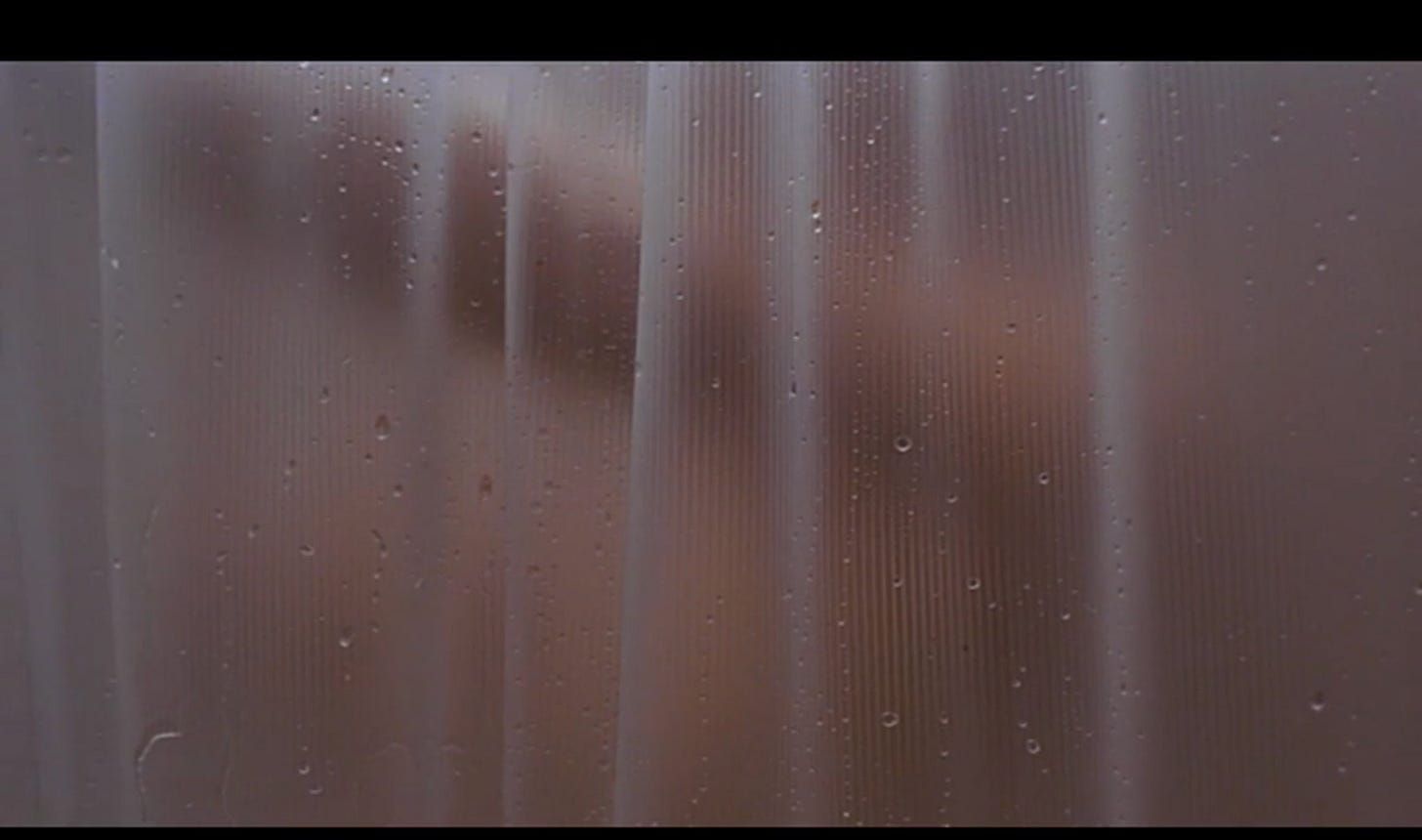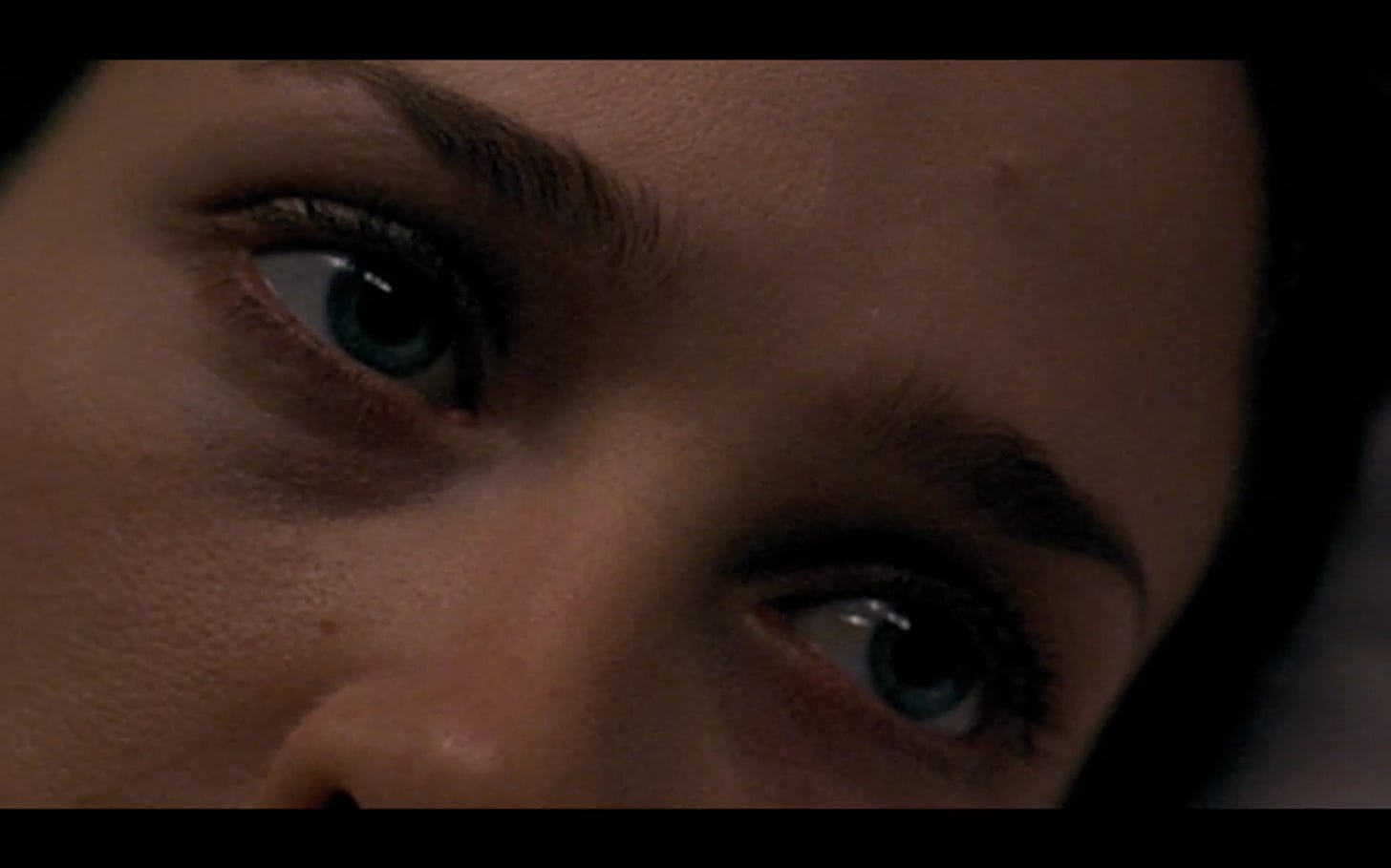There is a light that doesn’t illuminate but delivers to what it falls on a glittering and gross opacity, lowlighting spectrums of inscrutability.
a. “Even the pain of love is treated as suspect,” writes Byung-Chul Han in Palliative Society, where he diagnoses an algophobia. “Dissidence decays into design” and pain is not permitted to be “enlivened into passion.” This new violence masquerades as freedom and positivity, endeavoring to stamp out all negativity, fuzziness, and risk, where secrets, strangeness, and whatever halts or limits communication and transparency get likewise deleted. Where passion, thresholds, spectrums….. <&^??»»
b. Georges Bataille tells us that a kiss is the beginning of cannibalism.
c. In Trouble Every Day (Claire Denis, 2001), very little speaking takes place. The light veils. The camera, even as it gets very close to the couple, is a blur-machine, hard to tell skin from sheets.
d. Something moves bizarrely through the air in incremental cannibalisms.
e. desiring+devouring, where 2 become 1→1→2 →3 →1→?
&their proximity,
a. are there guarantees?
c. there are newlyweds
d. & 2 people far apart spatially but linked-up via a common ailment.
c. A Salon article on the film describes the experience of watching Trouble Every Day as being “like biting into what looks like a juicy, delicious plum on a hot summer day and coming away with your mouth full of rotten pulp and living worms.” This describes what’s extreme about the film and about loving, reading, kissing, desiring —> that the rotten pulp is not the opposite of the plum, but the plumb taken to a limit. Or, deliciousness and rotten worms exist on a perishable continuum.
A kiss is the beginning of…
A bite into anything is the potential for….
Degrees. Bodies adding and subtracting as they overlay and separate (light, space, skin) → “Love’s curious arithmetic,” writes Michel Serres.
a. Transmission’s ambivalence, the messenger (like the mouth) can switch. It is a matter of degree, spacing, a fuzzily lit spectrum of menace and gentleness.
b. Does this form of consumption serve the means of production?
c. It is not productive. It is not symmetrical. It is not.
Not. Not. Not.MOUTH
a. “Thresholds and transitions are zones of mystery and riddle—here, the atopic Other begins. When borders and thresholds vanish, fantasies of the Other disappear too. Without the negativity of thresholds or threshold-experiences, fantasy withers.” — Byung-Chul Han, The Agony of Eros
b. THRESHOLD an entrance, a door, a gate. Sometimes also an exit…
c. …?…
d. When the mouth moves, it usually does not speak…





